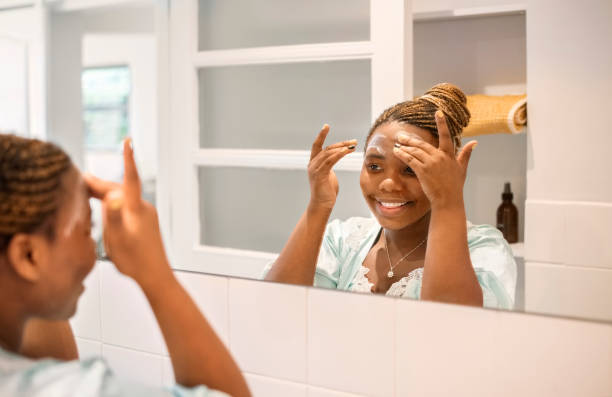Introduction
Acne can be more than just a skin issue; it can affect your self-esteem and confidence. If you’re battling acne and are tired of ineffective treatments, you’re not alone. In Abu Dhabi, cutting-edge acne treatments are available to help you achieve the clear skin you’ve always wanted. This article will guide you through the top acne treatments in Abu Dhabi, their benefits, and what you need to know to make an informed decision.
Understanding Acne
Before diving into treatment options, it’s important to understand what acne is and what causes it. Acne is a common skin condition that occurs when hair follicles become clogged with oil and dead skin cells. This can lead to pimples, blackheads, and cysts, primarily on the face, back, and shoulders.
Types of Acne
- Comedonal Acne: Includes blackheads and whiteheads.
- Inflammatory Acne: Includes papules and pustules.
- Cystic Acne: Severe acne that results in painful, deep cysts.
- Nodular Acne: Large, hard lumps beneath the skin.
Factors Contributing to Acne
Several factors contribute to acne, including:
- Hormonal Changes: Fluctuations, especially during puberty and menstruation.
- Genetics: A family history of acne can increase risk.
- Diet: High glycemic index foods and dairy may worsen acne.
- Stress: Can trigger or exacerbate acne outbreaks.
Why Choose Acne Treatment in Abu Dhabi?
Abu Dhabi is renowned for its advanced healthcare facilities and skilled dermatologists. Here’s why you might want to consider acne treatment in this city:
- Advanced Technology: Access to the latest acne treatments and technologies.
- Expert Practitioners: Dermatologists with extensive experience in treating acne.
- Comprehensive Care: Personalized treatment plans and ongoing support.
Top Acne Treatments in Abu Dhabi
- Topical Treatments
a. Prescription Creams: Contain ingredients like retinoids, benzoyl peroxide, or antibiotics to reduce inflammation and kill bacteria.
b. Over-the-Counter Products: Includes products with salicylic acid or alpha hydroxy acids to exfoliate the skin and prevent clogged pores.
- Oral Medications
a. Antibiotics: Oral antibiotics like tetracyclines reduce bacteria and inflammation.
b. Hormonal Treatments: For females, birth control pills can help regulate hormones that cause acne.
c. Isotretinoin: A powerful drug used for severe acne that doesn’t respond to other treatments. It works by reducing oil production in the skin.
- Laser Therapy
a. Intense Pulsed Light (IPL): Targets acne-causing bacteria and reduces oil production.
b. Laser Resurfacing: Removes damaged skin layers and stimulates collagen production to improve skin texture and reduce acne scars.
- Chemical Peels
a. Salicylic Acid Peels: Help unclog pores and reduce inflammation.
b. Glycolic Acid Peels: Exfoliate the skin and improve overall complexion.
- Microneedling
This procedure uses fine needles to create micro-injuries in the skin, promoting collagen production and reducing acne scars.
- Light and Heat Therapies
a. Blue Light Therapy: Kills acne-causing bacteria with blue light.
b. Red Light Therapy: Reduces inflammation and promotes healing.
Choosing the Right Treatment for You
Selecting the best treatment depends on various factors:
- Severity of Acne: Mild to moderate acne may respond well to topical treatments, while severe cases might need oral medications or advanced therapies.
- Skin Type: Sensitive skin may require gentler treatments.
- Lifestyle: Consider your ability to adhere to treatment regimens.
Consultation and Assessment
Before starting any treatment, a thorough consultation with a dermatologist is essential. This will involve:
- Skin Examination: Assessing the type and severity of acne.
- Medical History: Discussing past treatments and any underlying health issues.
- Personal Goals: Understanding what you hope to achieve with treatment.
Expected Results and Follow-Up
Achieving clear skin is a journey, not an overnight fix. Here’s what to expect:
- Initial Results: You may notice improvements within a few weeks.
- Long-Term Results: Full results can take several months, depending on the treatment.
- Follow-Up Appointments: Regular check-ins with your dermatologist to monitor progress and adjust treatments as needed.
Preventing Future Breakouts
Maintaining clear skin involves ongoing care:
- Daily Skincare Routine: Use gentle cleansers and moisturizers suitable for your skin type.
- Avoid Touching Your Face: Minimize the risk of transferring bacteria and oils.
- Healthy Diet: Incorporate foods that support skin health and avoid known triggers.
Cost of Acne Treatment in Abu Dhabi
The cost of acne treatments varies based on the type of treatment, the clinic, and the number of sessions required. Typically, prices range from a few hundred to several thousand dirhams. It’s advisable to discuss costs during your initial consultation.
Safety and Side Effects
Most acne treatments are safe, but potential side effects can include:
- Topical Treatments: Dryness, redness, or irritation.
- Oral Medications: Nausea, dizziness, or potential hormonal changes.
- Laser and Light Therapies: Temporary redness or swelling.
Conclusion
Acne treatment in Abu Dhabi offers a range of options to help you achieve clearer skin. Whether you opt for topical solutions, oral medications, or advanced therapies, the key is to choose a treatment tailored to your needs and to follow a comprehensive skincare plan. With the right approach, clear skin is within your reach.
FAQs
- How long does it take to see results from acne treatments?
- Results can vary, but many people see improvements within a few weeks. Full results may take a few months.
- Are acne treatments covered by insurance in Abu Dhabi?
- Coverage varies by insurance plan. Check with your provider to understand what treatments are covered.
- Can acne treatments be combined?
- Yes, combining treatments like topical creams with laser therapy can be effective. Consult your dermatologist for a personalized plan.
- Is there a risk of scarring with acne treatments?
- Most treatments are designed to minimize scarring. However, some procedures may carry a risk. Discuss this with your dermatologist.
- How can I maintain clear skin after treatment?
- Follow a consistent skincare routine, avoid known acne triggers, and maintain regular follow-up appointments with your dermatologist.


